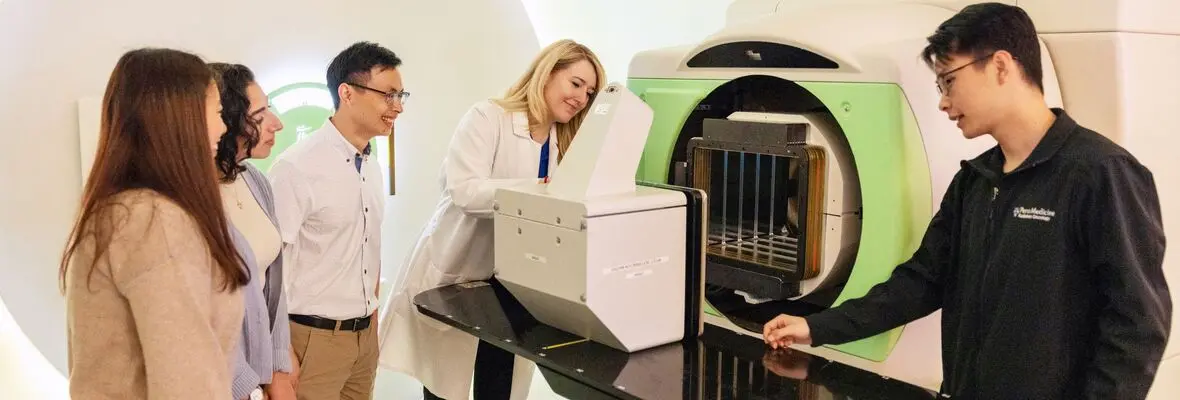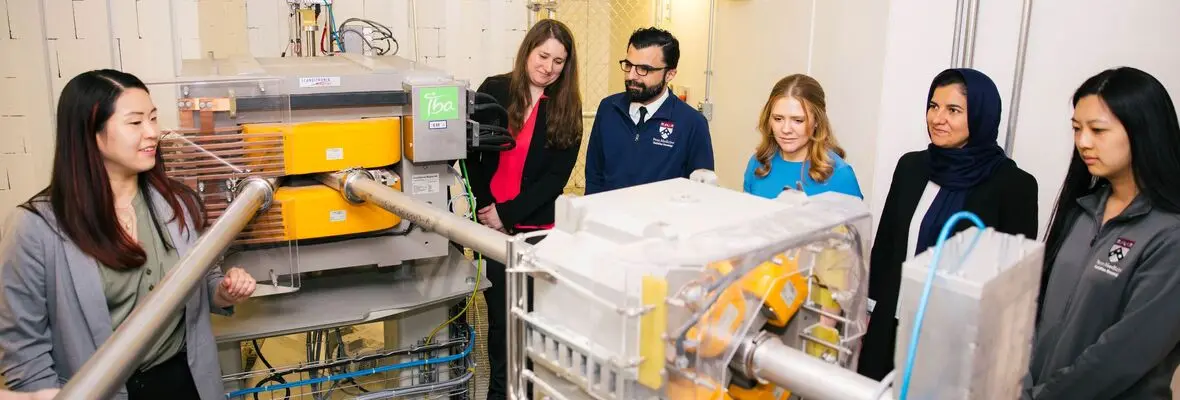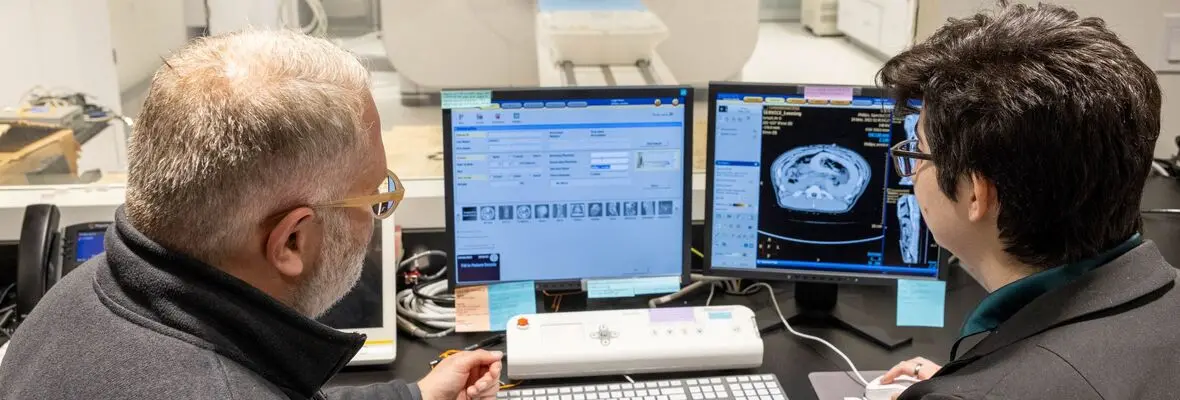Home
Learn More!
Watch the Virtual Information Session to learn more about our curriculum, program highlights, student experiences, admissions, and more!
View more Program Statistics »
Apply Your Physics Background
A career in medical physics offers you the opportunity to use your physics background to provide people with life-changing options every day. Medical physicists play a critical role at the cutting-edge of patient healthcare, overseeing effective radiation treatment, ensuring that instruments are working safely, and researching, developing and implementing new therapeutic techniques.
 Our Commission on Accreditation of Medical Physics Educational Programs (CAMPEP) accredited Master of Science in Medical Physics degree, PhD in Bioengineering - Medical Physics Concentration, and Certificate in Medical Physics program in the Perelman School of Medicine combines the resources of one of the world’s top innovative universities and most prestigious medical schools, offering you unmatched opportunities to shape your own path. Our administrative home is in the renowned Department of Radiation Oncology, which creates an ideal alignment of faculty, clinical, and research resources under one roof.
Our Commission on Accreditation of Medical Physics Educational Programs (CAMPEP) accredited Master of Science in Medical Physics degree, PhD in Bioengineering - Medical Physics Concentration, and Certificate in Medical Physics program in the Perelman School of Medicine combines the resources of one of the world’s top innovative universities and most prestigious medical schools, offering you unmatched opportunities to shape your own path. Our administrative home is in the renowned Department of Radiation Oncology, which creates an ideal alignment of faculty, clinical, and research resources under one roof.
Preparation for Professional Success
Our CAMPEP accredited programs are grounded in providing the highest standard of patient care. Our students have numerous opportunities to gain hands-on experience at some of the most advanced medical imaging and therapy facilities in the world through paid clinical work; practicum experience (master's degree); clinical shadowing (certificate program); opportunities for research, publication, and presentation; and much more. It is for this reason that our degree and certificate programs enjoy a high residency placement rate for our students, year after year. Our medical physics faculty, staff, and residents are invested in making our students competitive for medical physics residency programs and help them to develop the competencies and skills needed for professional success.
Program Objectives
- Provide students with comprehensive exposure to the science and art of the physics of radiation oncology, medical imaging, and radiation safety
- Prepare each student for a future career as a medical physicist in at least one subspecialty
- Provide students with information on pathways for non-clinical career opportunities
- Prepare students for a medical physics residency, PhD program in medical physics, or graduate studies in a related area, if so desired
- Prepare students, academically and clinically, for Part I of the certification examinations of the American Board of Radiology (ABR)
We welcome you to contact us to learn more about the possibilities that await you in the Medical Physics Graduate Programs at Penn.
News
-
NEW! Additional Scholarships
We are excited to announce that three (3) $40,000 scholarships are available per year (applied as a tuition bill credit) to support students who enroll full-time in our Master of Science in Medical Physics degree program. Learn more about our Financial Aid!
-
NEW! Global Clinical Practicum in Ghana
Selected students will have the opportunity to complete a funded, summer clinical practicum experience in Ghana through the innovative Global Medical Physics Training and Development Program.
-
NEW! Curricular Innovation
Learn more about how MPGP uses virtual reality (VR) to enhance our students' understanding of image-based anatomy.






